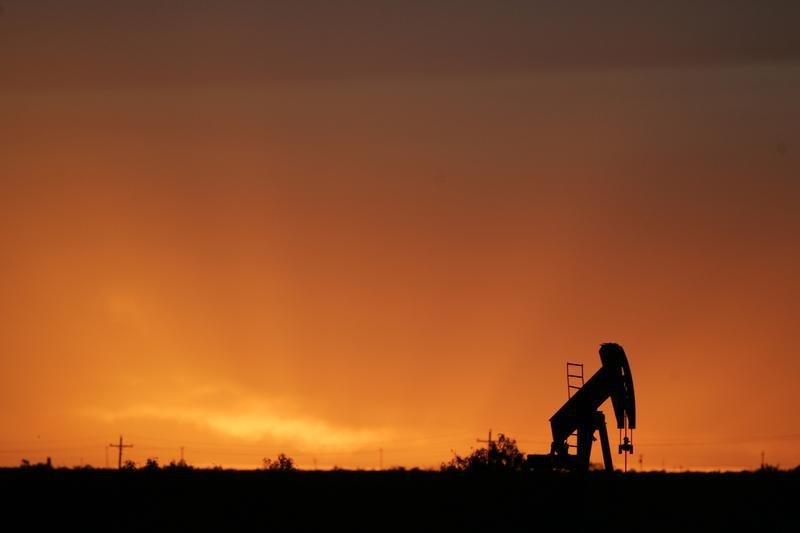© Reuters. Fighters of Wagner private mercenary group stand on a tank outside a local circus near the headquarters of the Southern Military District in the city of Rostov-on-Don, Russia, June 24, 2023. REUTERS/Stringer
2/5
(Reuters) – Heavily armed Russian mercenaries who advanced most of the way to Moscow began turning back on Saturday, de-escalating a major challenge to President Vladimir Putin’s grip on power, in a move their leader said would avoid bloodshed.
Here are reactions from investors and analysts:
QUINCY KROSBY, CHIEF GLOBAL STRATEGIST AT LPL FINANCIAL:
“Markets typically do not respond well to events that are unfolding and are uncertain,” particularly relating to Putin and Russia.
“If the uncertainty escalates, you’re going to see Treasuries get a bid, gold will get a bid and the Japanese yen tends to gain in situations like this.”
Markets will be “cautious” and “alert” in the coming days.
NICOLA MARINELLI, ASSISTANT PROFESSOR OF FINANCE, REGENT’S UNIVERSITY, LONDON:
“The impact on markets clearly depends on the final outcome of Russia’s internal power struggle; if it leads to an early conclusion of the war, it will be positive for markets in the short term.”
GENNADIY GOLDBERG, HEAD OF U.S. RATES STRATEGY AT TD SECURITIES IN NEW YORK:
“It certainly remains to be seen what happens in the next day or two, but if there remains uncertainty about leadership in Russia, investors may flock to safe havens. I suspect that even though it seems the leadership challenge in Russia has been de-escalated, investors may remain nervous about subsequent instability, and could remain cautious. Of course we will continue to watch how things evolve over the next few days.”
ALASTAIR WINTER, GLOBAL INVESTMENT STRATEGIST AT ARGYLL EUROPE:
“Uncertainty over various bad outcomes in Russia, as this looks like, means a stronger USD and possibly JPY now that Japan seems to be back in favor.”
“Short-term U.S. Treasuries “should pull back some of their recent losses relating to the Fed delaying further cutting rates. Global equities were wilting last week over stagflation worries and the news from Russia will not change that, even if it may not make much difference to most corporate earnings. There is not a lot of good news around.”
“I suspect markets may not react much at all now. However, Putin has clearly been weakened and there will be more developments. USD will certainly find some support as the market returns to speculating over rate hikes and cuts and recession in different economies.”
RICH STEINBERG, CHIEF MARKET STRATEGIST, THE COLONY GROUP, BOCA RATON, FLORIDA:
“Some frayed nerves were calmed in the short run” by the de-escalation, and “the markets will kind of treat this as another geopolitical risk.” Safe haven assets may not react because Wagner forces did not reach Moscow and inflame the situation, he said.
“Calmer nerves have at least prevailed for the moment. This is a fluid situation but I definitely think the heat has been dialed down by Putin.”
STEVE SOSNICK, CHIEF STRATEGIST AT INTERACTIVE BROKERS:
“This is a truly exogenous event that leads to initial shock and a flight to safety. It should awaken from its stupor. First move is likely to be a bump in government bond prices (lower yields) and USD. Riskier assets tend to decline. The question is how much and how lasting the reaction will be, much of which depends upon unknowable developments.”
“Even with Russian embargoes, they still sell plenty of raw materials to sympathetic nations like China and matter to the global supply. It is reasonable to expect oil and other key commodity prices to rise. If oil prices rise sharply, that will indeed weigh upon equities and reignite stagflation fears. Gold is tough to read. In theory it should benefit from a flight to safety, but in practice a strong dollar can impede it.”
“U.S. Treasuries should rise on the safety trade.”
“With Russia largely disconnected from the global economy, few U.S. or European companies will have direct impacts from instability in a country that’s already a pariah. So the broader markets will take their cues from bonds and commodities. Defense-related stocks should catch a bid – the world is not a safer place today – and commodity-linked stocks should also be outperformers for the reasons stated above.”
MICHAEL PURVES, CEO AT TALLBACKEN CAPITAL ADVISORS:
“Certain parts of the stock market have been flying really high. We do know that’s largely been driven by P/E expansion rather than earnings and this might give people an excuse to sell.”
“These types of geopolitical shocks are often short lived and usually don’t have much impact on the U.S. stock market but this time it may because stocks have run up so high.”
“Any time you have these kinds of political disturbances in a commodity nation you at least expect a short term shock to the prices of the commodities produced there.”
“We should start seeing classic risk-off dynamics on Sunday night such as global equity futures lower, higher, treasury prices higher.”
DAVID KOTOK, CHIEF INVESTMENT OFFICER AT CUMBERLAND ADVISORS IN SARASOTA, FLORIDA:
“This is a potential civil war in Russia. Important implications as Putin is already weakened by events and now faces existential threat as does his antagonist.”
“Turmoil effects include the price and availability of Russian energy. Geopolitical impact on Russian alliances like Belarus and nearby countries in Soviet sphere. In EU what does Hungary (Orban) or NATO ally Turkey do.
“Regardless of the outcome, this is already a very big deal.”
“Initial market reaction will be driven by news reports and by any concrete events. That is usually true of most rapidly changing event sequences. The strategic damage is already done. Every capital in the Russian alliance of countries and in the adversaries’ alliance and in the neutral alliance is rethinking the relationship with Putin.”
GEORGE BOUBOURAS, HEAD OF RESEARCH AT K2 ASSET MANAGEMENT IN MELBOURNE:
“Current reported Russian events are not helpful. It’s very concerning for the complex geopolitical global landscape and any uncertainty will obviously impact markets.”
“Higher vol lies ahead. However fundamentals will eventually resurface. That is, economies in developed markets remain resilient & central banks’ concerns with stubborn inflation create many challenges as rates need to go higher & remain higher for longer.”
JAMIE HALSE, PORTFOLIO MANAGER, PLATINUM ASSET MANAGEMENT, SYDNEY:
“If Putin removed, pure speculation and a hypothetical on my part, troops withdrawn from Ukraine and peace deal agreed, then that would be bullish for Russian-exposed businesses, Eastern Europe stocks, probably Chinese stocks by implication. Bearish energy, resources and defense stocks.”
“Probably bearish Indian stocks too as the dividend they’ve received from cheap Russian oil likely disappears.”
“On the other hand, civil war, especially if prolonged, in a major nuclear armed nation should make anyone uncomfortable …(though) we don’t really know what’s going on at this point. Civil war may be too long a bow to draw.”
Read the full article here













